FAQ: What Can Estheticians Do?
Once an individual receives their license, the services they can perform will vary. Estheticians are known to usually work in a spa, salon, or medical setting. They can conduct skincare services either for cosmetic or medical purposes.
Now, what services can Estheticians perform? This can vary heavily depending on your state’s rules and regulations. There may be different licenses for Estheticians that can expand or limit the services they may conduct.
There sometimes can be a slight difference between the various types of Estheticians like Medical or Nurse Estheticians. Other times, again, depending on what state you live in, you can determine if you are free to perform skin services that go beyond traditional spa services.
Others may also confuse the difference between a Cosmetologist and an Esthetician. They also have some contrasts that distinguish their characteristics. If you are still confused, don’t stress, we will cover what an Esthetician can do.
Estheticians can perform skin services that others are not properly trained to perform. It is mandatory that Estheticians go through the proper training or schooling to be able to obtain their license.
Now let's dive into what services an Esthetician can conduct once they get their license.
Esthetician Services and Treatments
Let’s do a quick refresher of what an Esthetician is, along with their differences between Cosmetologists and Dermatologists. You may even be surprised when we break down the differences.
What Is The Meaning Of Esthetician?
Now, if you are looking for a technical definition, Dictionary.com claims that an Esthetician is “a person trained to administer facials, advise customers on makeup and the care of skin and hair.”
What Does An Esthetician Do?
A licensed Esthetician is trained to conduct the following services:
- Facials
- Hair Removal
- Exfoliation
- Skin Peels
- Specific Skin Condition Treatments
- Skin Mapping
- Custom Skin Recommendations
Keep in mind this is just the surface of what most Estheticians can do in their place of work. Whether they work in a spa, salon, a medical clinic, or a resort, this can determine what additional services an Esthetician may be able to perform.
Does A Cosmetology License Cover Esthetician?
The short answer is No. There are some similarities between a Cosmetologist and an Esthetician. However, they are not licensed to operate the same services to their clients.
Esthetician Vs Cosmetologist
Bellus Academy states “ a Cosmetologist does learn skincare services, but on a significantly basic level while an Esthetician will learn more intensive facials, peels, hair removal techniques etc.”
Cosmetology is very much focused on hair and hair services like cutting, coloring, styling, etc. While they focus on some skincare services like waxing or facials, they are at the most basic level.
Cosmetology can also slightly touch on nail and makeup services; however, depending on the state, there are separate licenses for nails and makeup. The main takeaway is that Cosmetology mainly focuses on hair.
If learning about intensive skincare and makeup applications in-depth sounds more appealing, then Esthetics is the route for you.
Esthetician Vs Dermatologist
Surprisingly enough, an Esthetician is not a doctor that specializes in skin. That would be a dermatologist. If you have a severe skin condition, an Esthetician is not trained to diagnose you.
In this scenario, an Esthetician should immediately recommend that you see a Dermatologist. Dermatologists also have a degree in a medical background.
Dermatologists can provide similar services in some cases like Estheticians. However they are allowed to conduct more medical procedures along with medical advice.
An Esthetician, on the other hand, will work more for cosmetic purposes. They focus more on the feel and look of your skin.
There are some slight exceptions, like a Medical Esthetician. However these Estheticians are still not qualified or trained to treat or diagnose skin conditions.
What Does A Medical Esthetician Do?
According to the Beauty Schools Directory, “ a Medical Esthetician can perform many of the same services as an Esthetician. However, they have additional training that can allow them to work in a medical setting.”
Medical Estheticians have more leeway into providing esthetic services for medical purposes. While they work with more severe skin conditions or lesions, they are still not as qualified as a Dermatologist.
They are not still capable of diagnosing extreme skin disorders and treating them. Medical Estheticians can find a wide variety of places to work besides spas and salons. They can work in a plastic surgeon’s office, a dermatology office, or a rehab center.
Other differences include salary, licensing requirements, training, experience, etc.
What Services Can An Esthetician Perform?
Now, what everyone is wondering, what can you see an Esthetician for? If you are interested in receiving one of these services below or deciding if becoming an Esthetician is right for you, then you are in the right place.
Along with these services, we will touch on the licensing requirements that these services will require. Let’s break down the most common skincare treatments and if an Esthetician is trained in those areas.
Can Estheticians Do Botox?
Unfortunately, an Esthetician is not allowed nor qualified to provide Botox treatments. Botox can only be performed by a medical professional like a plastic surgeon or dermatologist.
Estheticians can’t perform Botox because it is classified as a medical treatment. It is also a treatment that is performed underneath the uppermost layer of the skin.
Can Estheticians Do Dermaplaning?
Dermaplaning is a service that will vary by state. For example, California doesn't allow Estheticians to conduct this service. Only medical professionals are allowed.
On the other hand, Colorado will allow it only with a certificate that completed training along with a Cosmetology license. If this interests you, check to see what your state’s rules and regulations are for Dermaplaning.
Can Estheticians Do Permanent Makeup?
If you are a licensed Esthetician, chances are you will be able to take a course in permanent makeup, receive a certificate, and then be able to perform this service. Again, it depends on your state.
If you are not a licensed Esthetician, you can enter a permanent makeup course. However, you will only be certified to perform permanent makeup services. Check your state’s rules and regulations.
Can Estheticians Do Microblading?
In most states, as long as you follow specific state rules and regulations, you can perform Microblading. In most cases, only a bloodborne pathogens training certificate is required.
You might still need to complete a separate course in Microblading. It always helps to have extra certifications on hand.
Can Estheticians Do Waxing?
Estheticians can perform waxing. Waxing is one of those essential and basic services that every single Esthetician learns how to conduct. They may also discover other hair removal techniques.
If you have been to a salon or spa for a wax service, it is most likely an Esthetician working with you and performing the waxing service. They are trained to remove hair from all parts of the body.
Can Estheticians Do Massage?
Estheticians are allowed to perform massage services in some cases. They learn the basics of massage when it comes to the face, the arms, the neck, and the shoulders. This is standard for facials.
However, they are not allowed to perform full-body massages. In Esthetics training, they do not cover the full body tissues. This is what a massage therapist will learn.
Can Estheticians Do Sugaring?
Sugaring is also another form of waxing. It is a more natural and traditional way to remove unwanted hair. We have previously touched on waxing, so of course, an Esthetician can conduct sugaring.
Most Estheticians who work in spas and salons have either learned about sugaring in school, or have taken a separate course to become certified in Sugaring.
Can Estheticians Do Nails?
Estheticians do not provide nail services. Cosmetologists will learn the basics of nails. However, Nail Technicians are the people you need to see for nail services.
Unfortunately, Estheticians do not learn or perform nail procedures. While they do work closely together in a salon environment, they are entirely different.
Can Estheticians Do Chemical Peels?
Estheticians usually work with the uppermost layer of skin. So peels that are specialized for surface level of exfoliation are allowed to be performed by an Esthetician.
More abrasive peeling needs to be performed by medical professionals. Of course, always check your state’s rules and regulations for Estheticians.
Can Estheticians Do Brow Lamination?
Brow Laminations are also one of the many services that vary by state. Each state will have its restrictions or laws in place regarding whether an Esthetician can perform this service.
Sometimes it's a yes; other times, more training is required to be certified in brow laminations.
Can Estheticians Do Teeth Whitening?
In most states, teeth whitening is only allowed to be performed by a dentist or only in a dentist’s office. If an Esthetician claims to be certified in Teeth Whitening, it’s best to proceed with caution.
As always, check your state’s rules and regulations. You don't want to weaken or sensitize the teeth due to improper technique.
Can Estheticians Do Vampire Facial?
Vampire Facials are a tricky one. Some states do consider it a medical treatment that medical professionals can only perform. However, in other states, the Estheticians can perform this service, but not all the way through.
Estheticians are trained for microneedling, but when it comes to drawing out the blood in the service, a medical professional may be required to conduct this length of the service.
Can Estheticians Do Ultherapy?
Ultherapy is also one of the many services that will vary based on your state board’s rules and restrictions. In some states where the Master Esthetician license is available, they are allowed to perform Ultherapy.
If not, regular Estheticians may need to go through additional courses and training to be certified in ultrasonic skincare.
Can Estheticians Do Fibroblast?
Estheticians are eligible to take a course to be certified to perform Fibroblast. However, Fibroblast is not a treatment that is approved by the FDA.
Each state has their own guidelines on who can perform certain services and what will be required to perform those services. Individuals who are not Estheticians can’t perform Fibroblast.
Can Estheticians Do Extractions?
Yes, extractions are one of the many things Estheticians are trained to do either during facials or other skincare treatments. Extracting is essentially cleaning out any clogged pores to reduce acne.
Because extractions are invasive, it is always wise to book an appointment with your Esthetician and let them clear out your skin.
Can Estheticians Do Laser?
Laser therapy or laser treatments are often categorized as a medical treatment. An Esthetician may be able to become certified in Laser in most states. However they must always be under the supervision of a medical professional.
Better to be safe than sorry; always check with your state board if laser treatments are something you consider diving into.
Can Estheticians Do Plasma Pen?
Just like Fibroblast, Plasma Pen is a tricky one. Some states will allow Estheticians to train in additional courses to receive a certification.
Other states may only allow medical practitioners to perform services like the Plasma Pen.
Can Estheticians Do PRP?
Like the Vampire Facial, Estheticians may only be allowed to perform the microneedling within this service and have a medical practitioner for the rest of the service.
If you are confused if this is available in your state, contact your state board for information on licensing requirements.
Can Estheticians Do Body Contouring?
Estheticians are trained to conduct a majority of body therapies like body wraps or hair removal. However, body contouring also heavily depends on each state's rules and regulations.
California, for example, does allow Estheticians to perform this service. In some cases, those who are a Medical Esthetician will be able to complete services such as body contouring.
Can Estheticians Do Microneedling?
According to Esthetician Edu “under FDA guidelines, Estheticians can only use microneedling devices of less than 0.3mm and only those that do not make medical claims.”
It’s important to remember that Estheticians are not medical doctors that specialize in skincare.
Can Estheticians Do Lash Lifts?
It is widespread to find Estheticians who are licensed, trained, or certified to perform lash lifts. However, it again depends on the state.
Some states do not allow Estheticians to perform lash lifts, and others do if they go through additional training.
Can Estheticians Do PDO Threads?
PDO Threads are considered a medical service that doctors can only perform, nurses, or other medical practitioners who have already gone through various other training sessions like Botox or Derma Filler.
Can Estheticians Do Makeup?
Yes, Estheticians are qualified to do makeup. This is because Estheticians are trained to treat the look and feel of the uppermost layer of the skin. They learn anatomy to help with makeup application.
Can Estheticians Do Kybella?
Only medical physicians or RNs are allowed to perform Kybella. This is because Kybella is a treatment that is injected in the skin to reduce areas with unwanted fat. Like under the chin, for example.
Can Estheticians Do Tattoo Removal?
This is possible under several conditions. If the state the Esthetician is working in allows them to go under additional training in laser certification. Then the Esthetician can remove tattoos.
Always check the state board’s licensing requirements.
Can Estheticians Do Electrolysis?
Electrolysis may be a sector that requires its own license to perform this service. Most Estheticians choose to go through this licensing to be able to perform Electrolysis.
As stated before, if you are confused, always check your state’s licensing rules and regulations.
Can Estheticians Do Lip Fillers?
Again, it will heavily depend on what your state’s licensing requirements are. It's possible only medical physicians are allowed to perform lip fillers.
However, it may be possible that Medical Estheticians can be trained and certified to conduct lip filler applications.
Can Estheticians Do Hyaluron Pen?
Hyaluron Pen is another service/tool that is not FDA approved and usually should only be performed by medical physicians.
While it is very unclear if Estheticians can perform this service, most sources say no. If you need additional information, contact your state board.
Can Estheticians Do Laser Hair Removal?
Some states will allow an Esthetician to perform laser hair removal, while others may require additional training. It very much depends and varies state by state.
Can An Esthetician Do CoolSculpting?
Most states will allow Estheticians to perform CoolSculpting, or at the very least, require additional training. It is considered a non-invasive treatment, and it is recommended to contact your state board.
Can An Esthetician Do HydraFacial?
In most cases, Estheticians are trained and allowed to perform HydraFacials. HydraFacials deep clean, exfoliate and hydrate the skin to help conditions like acne or wrinkles.
Can An Esthetician Do Hydrodermabrasion?
Remarkably similar to HydraFacials, in most cases, Estheticians can be trained to perform Hydrodermabrasion. However, always check with your state board.
Can Estheticians Do Lip Injections?
Estheticians are usually not allowed to perform lip injections themselves. However, they may be able to assist medical professionals during this procedure.
Can Estheticians Remove Milia?
Unfortunately, Estheticians are not qualified to remove Milia. Because this is an intensive procedure that calls for the skin to be punctured, it must be performed by a medical professional.
Can Estheticians Remove Skin Tags?
Removing Skin Tags will depend on your state’s laws. In some cases, Estheticians are allowed to remove skin tags. In other cases they are prohibited from doing so.
Can Estheticians Have Long Nails?
It is not recommended for Estheticians to have long nails. While their nails should be clean and manicured, long nails can put the client at harm or provide a hygiene issue.
Services Estheticians Can Offer
Most Popular Esthetician Services
- Facials
- Waxing
- Pore Cleansing
- Acne Treatments
- Makeup Application
- Extractions
- Body Scrubs
- Chemical Peels
While an Esthetician may be able to perform even more services than what is listed above, this is just a peek of what Estheticians are capable of.
Where Do Estheticians Make The Most Money?
The salary of an Esthetician can also depend on the state. According to a simple Google search, the states that provide high wages to Estheticians are:
- Colorado
- Wyoming
- Hawaii
- Massachusetts
Places of work that can provide high salaries as well can be:
- Resorts
- Medical Clinics
- High-end Spas/Salons
Where Can You Work With An Esthetician License?
If you receive your license in one state, there is a chance you are only licensed to practice in that one state. However, there may be a process to transfer your license. It all depends on the state board.
However, Estheticians can find work in the following locations:
- Spas
- Salons
- Medical Clinics
- Doctor’s Office
- Resort
- Cruise Ships
These are the most common places to find an Esthetician.
Summary
Although they may sound similar or sometimes provide similar services, Estheticians are extremely different from Cosmetologists. They are also different from Dermatologists.
Cosmetologists will mainly focus on all things hair like hair cutting, coloring, styling, etc. Estheticians are not qualified to treat or diagnose severe skin conditions. That is a job for a Dermatologist.
Estheticians only deal with the uppermost layer of the skin unless state regulations say otherwise. However, they are usually prohibited from providing services that are invasive or that inject the skin.
A Medical Esthetician may be allowed to work in medical clinics or environments, and in some cases, may be able to perform more intensive procedures than an Esthetician can.
Medical Estheticians can also assist or be under the supervision of a medical physician.
There are hundreds of services out there in the skincare world, and whether an Esthetician is allowed to perform certain services will always depend on the state’s rules and regulations.
Your state board is where you will find out all the licensing requirements, along with what additional certifications can be completed. This is where you can find what the laws are regarding specific services.
These state-by-state laws also determine what an Esthetician’s salary will be. Of course, some states have higher standards than others. Estheticians can find work in various places like salons, spas, medical clinics, resorts, etc.
Now that we have gone over the main differences between Estheticians and other Beauticians or Physicians, it may be more precise what licensed professionals can perform which services.
There are hundreds of services that can be performed. Some are more basic than others, and some are highly invasive that only a medical professional can handle.
While it may be overwhelming at first, once you are familiar with these services and terminology, you will be more comfortable choosing the route you want to take when it comes to Esthetics.
Now you are informed and ready to go down any road you choose to help people increase their confidence and well-being!


















